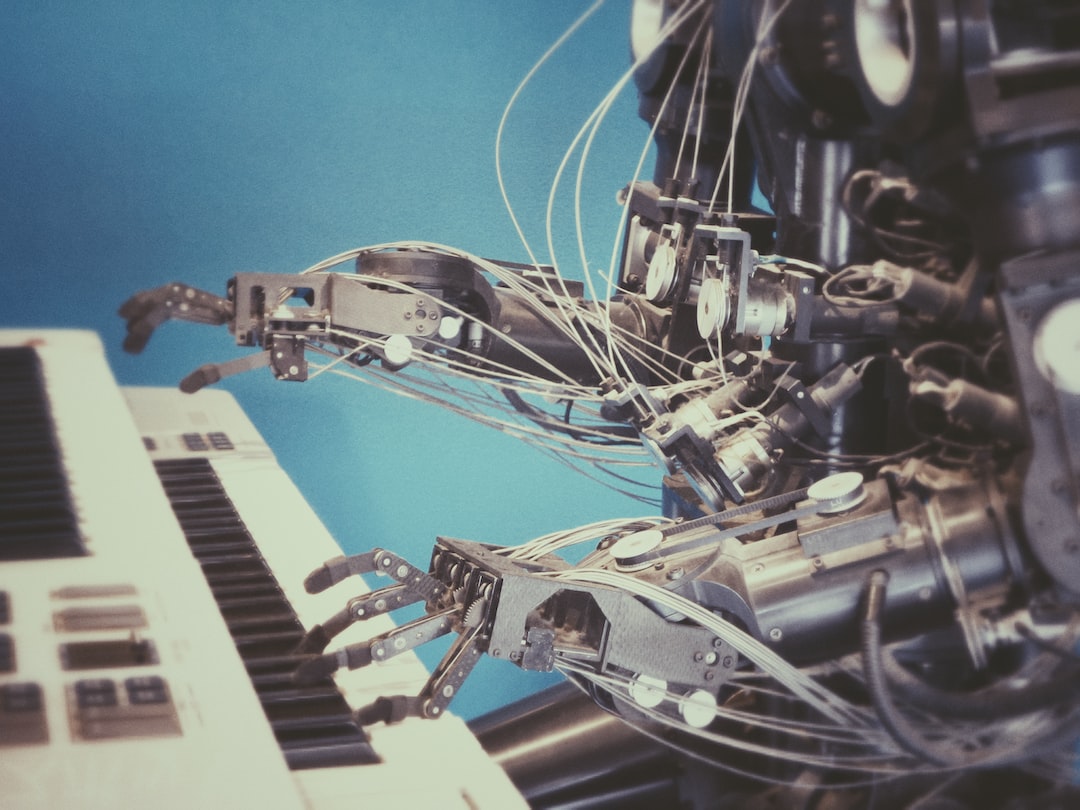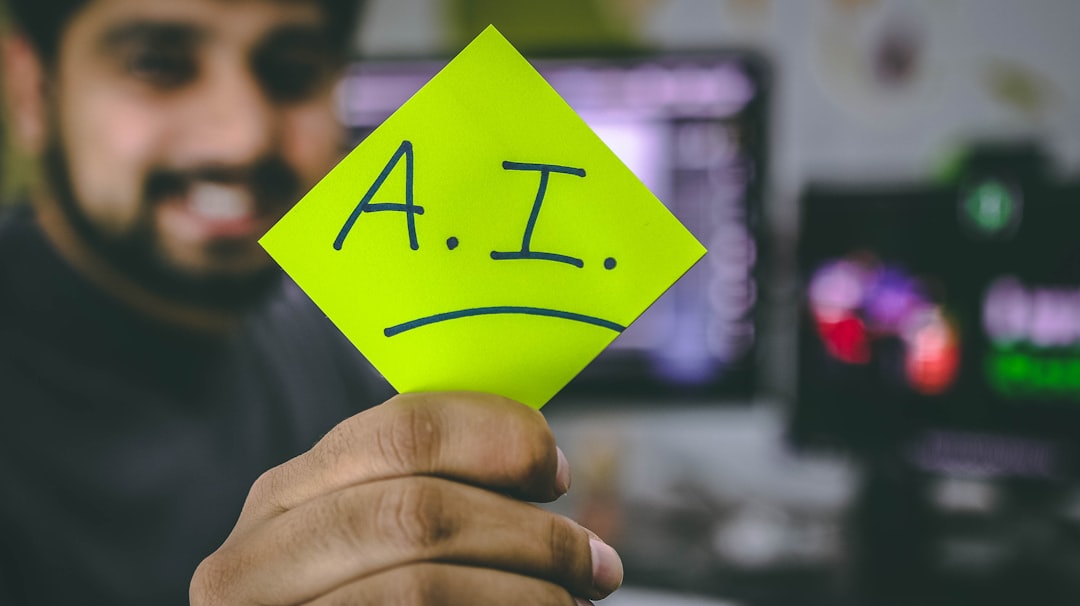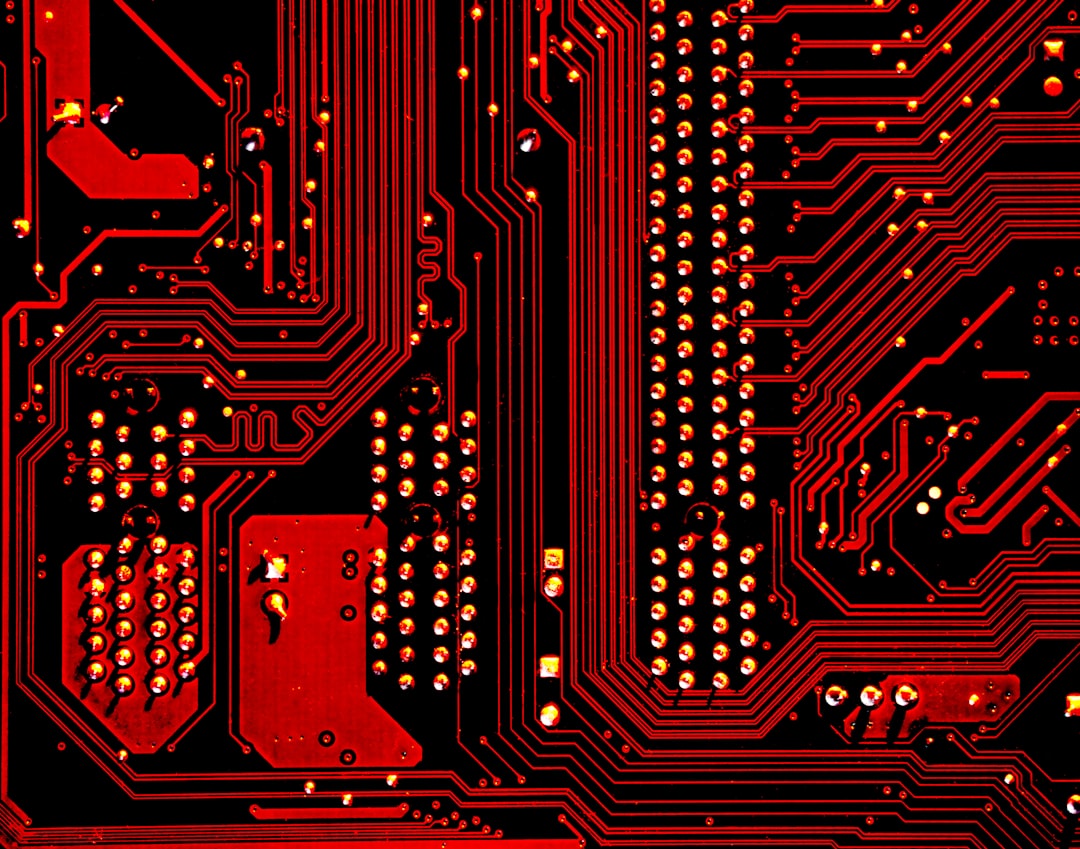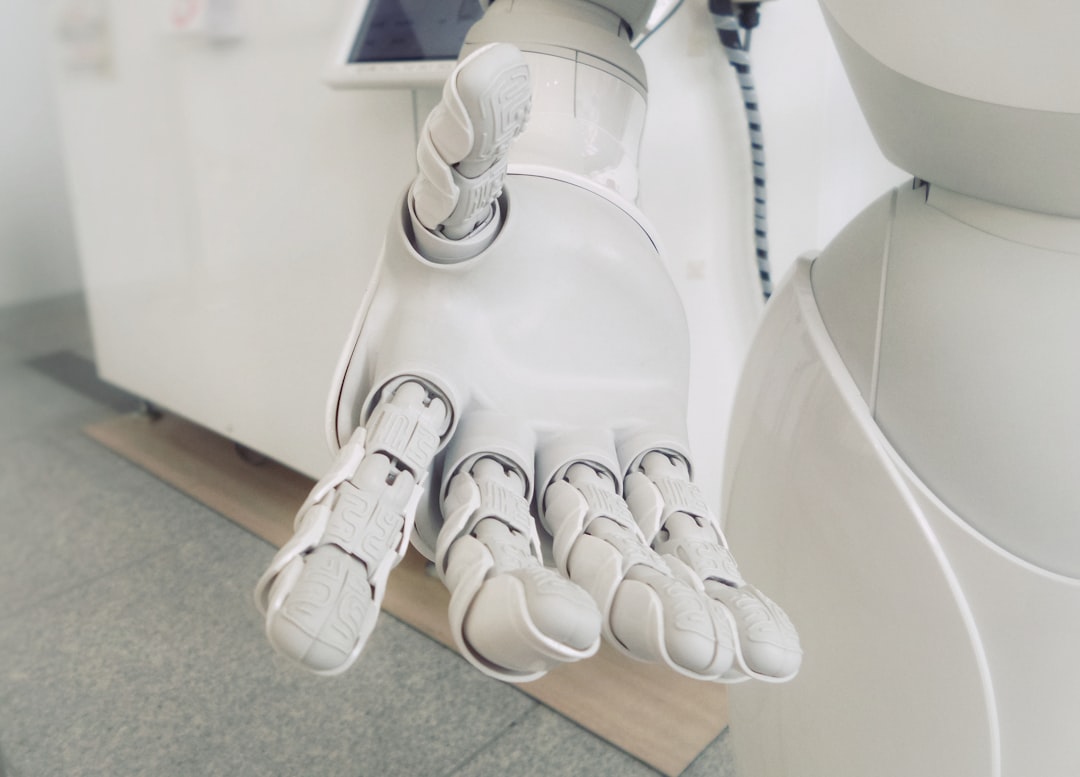As technology continues to evolve, we are witnessing a significant intersection between AI and programming. The integration of AI into programming has led to the development of intelligent code editors, faster and more efficient code optimization, and the overall improvement of software development lifecycles. This fusion of AI and programming has opened up vast opportunities in the field of software development, making it easier for developers to create optimized and efficient code.
The introduction of AI into programming has not only brought with it new possibilities, but it has also solved several long-standing issues that developers have been facing for years. The use of AI in programming has streamlined the development process, making it quicker and more efficient. It has also made coding more accessible and easier for individuals who may not have extensive programming knowledge.
In this blog post, we will explore the intersection of AI and programming, from its evolution to its impact on software development lifecycles. We will also examine the opportunities and challenges that come with AI-integrated programming and how developers can prepare for the future of coding with AI. So, let’s dive in and explore the exciting world of AI and programming.
The Evolution of Programming Languages and AI Development
As software development and Artificial Intelligence (AI) continue to advance, it is fascinating to look back at the history of programming languages and how they have affected the development of AI. In the past, programming languages were primarily used to write code that performed simple tasks. However, as AI evolved, developers began to see the need for new programming languages that could handle more complex tasks.
One of the earliest programming languages used for AI was Lisp, developed in the 1950s. Lisp was designed to be easily manipulated by AI programs and became the foundation of many AI applications. In the 1970s, Prolog was developed, which used logical rules to solve problems, making it popular for AI applications such as natural language processing.
As AI continued to advance, more programming languages were developed to accommodate its needs. For example, Python, a popular programming language today, was developed in the early 1990s specifically for AI and data analysis. Its structure and syntax make it easy to work with large data sets and perform complex calculations, making it an ideal language for AI and machine learning applications.
Today, there are many programming languages that are used for AI development, each with its own strengths and weaknesses. Some of the most popular programming languages for AI include Python, R, Java, and C++. These languages all have different capabilities and are suited for different applications, so it is important for developers to choose the right language for their specific needs.
In addition to the evolution of programming languages, AI has also had a significant impact on the way software is developed. AI-driven coding assistance tools have become increasingly popular, allowing developers to write code faster and more efficiently. These tools can analyze code and suggest improvements or even generate code automatically, making the development process faster and easier.
The evolution of programming languages and the development of AI have been closely intertwined. As AI has become more complex, new programming languages have been developed to accommodate its needs. Today, developers have more tools at their disposal than ever before, making it easier than ever to develop AI applications. As we look to the future, it is clear that the relationship between AI and programming will continue to evolve and grow, presenting exciting opportunities for developers and businesses alike.
Today, developers have more tools at their disposal than ever before, making it easier than ever to develop AI applications.
AI-Driven Coding Assistance: The Rise of Intelligent Code Editors
The advent of Artificial Intelligence (AI) has revolutionized the field of software development. The integration of AI with programming has resulted in the development of intelligent code editors that have transformed the way developers write code. These editors have made coding more efficient, productive, and less error-prone.
AI-driven coding assistance has become increasingly popular, and developers are quickly adopting these tools. With the rise of intelligent code editors, developers can now write code more efficiently and effectively than ever before. These tools use AI algorithms to offer suggestions and predictions for code completion, syntax, and formatting, thus reducing the time required to write code by a significant amount.
Intelligent code editors employ machine learning techniques to understand the context of the code being written and adjust their suggestions and predictions accordingly. They can also learn from the developer’s coding habits and preferences, thus providing more personalized assistance. Additionally, these editors can detect and highlight errors in the code, making it easier for developers to debug their code and achieve cleaner and more efficient code.
One of the most popular examples of AI-driven coding assistance is Microsoft’s Visual Studio IntelliCode. This tool uses machine learning algorithms to provide intelligent code completion suggestions, detect and highlight errors, and suggest refactorings to optimize code. Similarly, JetBrains’ IntelliJ IDEA provides smart code completion, error detection, and code optimization suggestions, making it a popular choice among developers.
AI-driven coding assistance is not only limited to traditional programming languages but has also extended to newer technologies such as low-code and no-code platforms. These platforms use AI algorithms to generate code automatically based on the user’s requirements and preferences, thus making application development much more accessible and efficient.
AI-driven coding assistance has brought a significant change to the world of software development. Intelligent code editors have made programming more efficient, productive, and less error-prone. As AI technology continues to evolve, it is expected that developers will be able to write code even more efficiently, and the possibilities for what can be achieved will be endless. So, embrace the change, and let AI-driven coding assistance help you write better code faster.
One of the most popular examples of AI-driven coding assistance is Microsoft’s Visual Studio IntelliCode.
Debugging and Optimization with AI: Achieving Faster and More Efficient Code
As programming languages become more complex, it is increasingly difficult for developers to identify and fix errors in code. Fortunately, the integration of AI in programming has paved the way for new debugging and optimization tools that can help developers achieve faster and more efficient code.
One of the main benefits of AI-driven debugging and optimization tools is their ability to analyze large amounts of code and identify errors and inefficiencies. With traditional debugging methods, developers would need to manually search through their code to identify errors, a process that could take hours or even days. With AI, developers can rely on intelligent algorithms to scan their code and provide detailed reports on where errors are occurring and what optimizations can be made.
In addition to identifying errors and inefficiencies, AI can also help developers optimize their code for specific platforms or devices. For example, if a developer is creating an app that will be used on a mobile device, AI can help them optimize the code to ensure that it runs smoothly and efficiently on that specific device.
Another benefit of AI-driven debugging and optimization tools is that they can learn from past mistakes and improve over time. As developers use these tools to identify and fix errors, the algorithms that power them can learn from these experiences and become more accurate and efficient over time.
Of course, like any technology, AI-driven debugging and optimization tools are not without their challenges. One potential issue is that these tools may not be able to identify errors or inefficiencies that are deeply embedded in the code. Additionally, some developers may be hesitant to rely on AI for such a critical aspect of the development process, preferring instead to rely on their own expertise and experience.
Despite these challenges, the benefits of AI-driven debugging and optimization tools are clear. By leveraging the power of AI, developers can create faster, more efficient code that runs smoothly on a variety of platforms and devices. As the integration of AI in programming continues to evolve, we can expect to see even more exciting developments in this area.
One potential issue is that these tools may not be able to identify errors or inefficiencies that are deeply embedded in the code.
The Impact of AI on Software Development Lifecycles
Artificial intelligence has disrupted almost every industry and Software Development is no exception. It has brought about a paradigm shift in the way software is developed, tested, and deployed. AI has the potential to transform the software development lifecycle from end-to-end.
One of the major advantages of AI in software development is its ability to automate repetitive tasks. This can be seen in the testing phase of the software development lifecycle where AI-powered tools can perform regression testing at a much faster pace than humans. They can detect and report bugs as soon as they occur, thereby enhancing the quality of the software.
AI can also assist developers in identifying the best programming practices by analyzing code repositories, which reduces the possibility of errors and vulnerabilities. With the help of AI-powered tools, developers can write better code with improved refactoring and bug fixing capabilities.
Moreover, AI can assist in project management by identifying patterns and providing insights into the development process. By analyzing past project data, AI can predict the time required for future projects, estimate the cost of development, and allocate resources accordingly. This, in turn, helps project managers plan and execute projects more efficiently.
Another area where AI can be leveraged is in the deployment phase of the software development lifecycle. It can automate the deployment process, ensuring that the software is deployed accurately and consistently across multiple environments. This helps in reducing manual errors and increasing the speed of the deployment process.
However, with the implementation of AI in software development, there are certain challenges that need to be addressed. One such challenge is the lack of transparency in AI-powered tools. It is difficult for developers to understand how these tools work and the reasoning behind the suggestions they provide. Additionally, there is a risk of AI tools introducing biases into the software development process.
The impact of AI on software development is undeniable. It has the potential to transform the software development lifecycle and make it more efficient and effective. However, it is important to be mindful of the challenges that come with it and work towards mitigating them. By doing so, we can leverage the power of AI to make software development faster, better, and more reliable.
However, it is important to be mindful of the challenges that come with it and work towards mitigating them.
The Future of AI-Integrated Programming: Opportunities and Challenges
The integration of artificial intelligence (AI) into programming has been a game-changer for developers, allowing them to work more efficiently and effectively. However, this integration also brings a set of unique challenges and opportunities that we need to prepare for.
One of the biggest opportunities of AI-integrated programming is the ability to automate menial tasks. AI can take on repetitive tasks, like debugging and optimization, freeing up developers to focus on more complex issues. This automation can also lead to increased productivity, allowing developers to work on more projects in less time.
Another opportunity is the ability to enhance the user experience. AI algorithms can help personalize software to a user’s preferences and habits, improving usability and engagement. Additionally, AI can help predict user behavior and provide insights to developers, allowing them to make informed decisions when designing software.
However, there are also challenges that come with AI-integrated programming. One challenge is the potential for bias in the algorithms. If AI is programmed with biased data, it can perpetuate those biases in the software it produces. Developers must be aware of this and work to ensure that their algorithms are fair and unbiased.
Another challenge is the potential for job displacement. As AI takes on more tasks, there is a risk that some jobs may become obsolete. However, this can also lead to new job opportunities in fields like data science and AI development.
As we move forward, it’s important to embrace the opportunities that AI-integrated programming presents while also being mindful of the challenges. By staying informed and adapting to this new technological landscape, we can prepare for the future of coding with AI.
Developers must be aware of this and work to ensure that their algorithms are fair and unbiased.
Conclusion: Preparing for the Future of Coding with AI
As we have seen in the previous six chunks of this blog post, the intersection of AI and programming is rapidly changing the landscape of software development. From AI-driven coding assistance to optimization and debugging, programmers can now leverage the power of AI to make their work faster, more efficient, and more accurate.
But what does the future hold for AI-integrated programming? With the continued advancement of AI technology, we can expect programming to become even more automated, with AI taking on more and more of the coding process. This could lead to increased productivity, faster development times, and even more innovation in the software industry.
However, as with any new technology, there are also challenges that come with the integration of AI into programming. One of the biggest concerns is the potential for AI to replace human programmers entirely. While this is a possibility in the distant future, it is unlikely to happen anytime soon. AI-driven coding assistance is still a tool that requires human oversight and direction.
Another challenge is ensuring that AI is used ethically and responsibly. As AI becomes more integrated into programming, it will be important to consider the potential impact on society and individual privacy. It is essential that AI is used to benefit humanity and not harm it.
As programmers, it is important to prepare for the future of coding with AI. This means staying up-to-date with the latest AI technologies and learning how to integrate them into our work. It also means being adaptable and open-minded, embracing the changes that come with the integration of AI into programming.
In conclusion, the future of programming is clearly intertwined with the evolution of AI technology. By embracing the opportunities that AI presents, we can create better, faster, and more innovative software than ever before. With careful consideration and ethical use, the integration of AI into programming has the potential to benefit humanity in countless ways. So let’s prepare for the future of coding with AI and embrace the possibilities that lie ahead.





